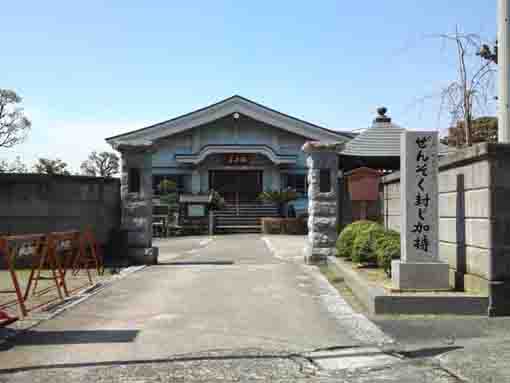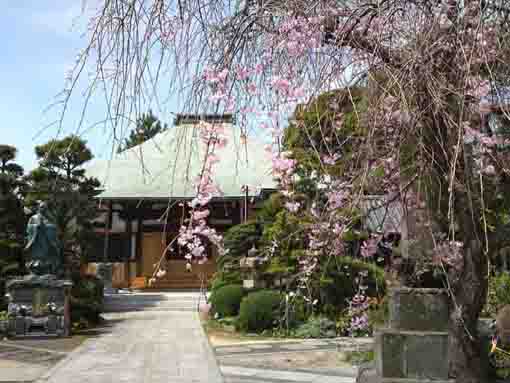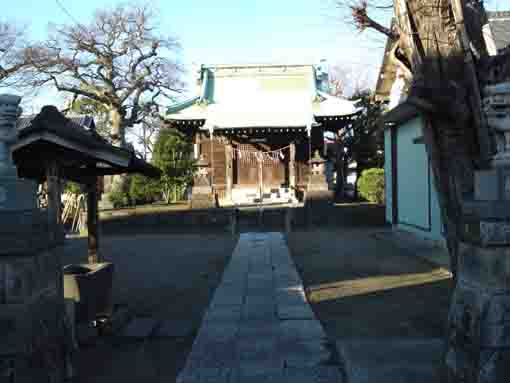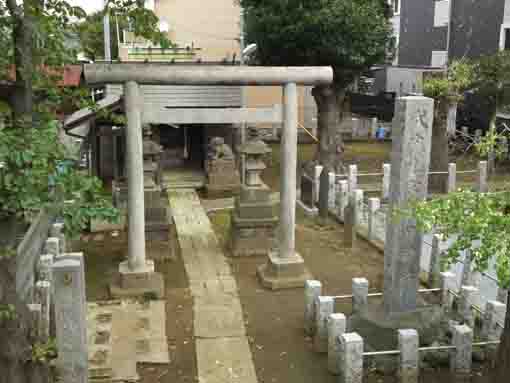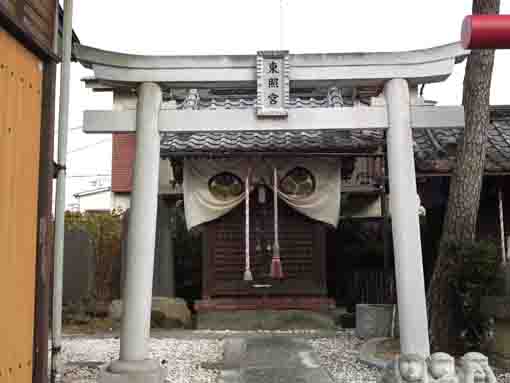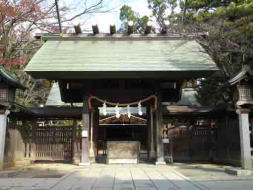Nakayama is in between Narita And Haneda International Airport
<クッキーについての同意並び欧州居住者向けプライバシーポリシー>
中山・下総・散歩道
myogyo-ji Temple upon Baraki 原木山妙行寺
Myogyo-ji Temple With The Drooping Cherry Blossoms
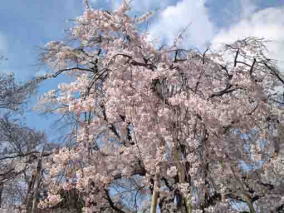
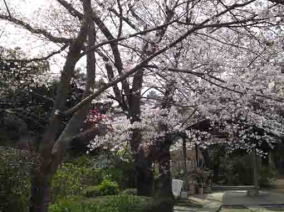
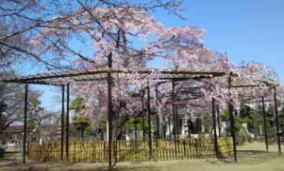

Walk down along the Mama-gawa River and 100 meter after passing through under the Keiyo Highway, you could find a pagoda in your right, that is Barakisan Myogyoji Temple. Myogyoji Temple is one of a temple belonging to Nichren Sect at Ichikawa City in Chiba Prefecture. It was built in 1538 as a branch temple of the Grand head Temple of Nakayama Hokekyo-ji Temple, but now it is an independent temple of Nichiren Sect. Myogoy-ji Temple has the Jukkai Mandala (a mandala of the ten worlds; the six worlds of delusion and the four worlds of enlightenment) and a statue of the founder venerable Nichren as the main object of worship. The temple also has 'Katyu Shutsugen Bouka Soshi Zou (a picture of the founder venerable Nichiren appeared in the fire for prevention of fires). In addition, the drooping cherry tree and embossed carving on the temple gate are very famous. And it is also famous that Kafu Nagai often visited it. The temple gate, pagoda, main hall and garden are excitingly beautiful. Especially, the embossed carving and sculptures on the gate is great. Moreover, the cherry blossoms on the over 50 years old drooping cherry tree are very beautiful, many people visit and enjoy seeing them in spring.
Barakisan Myogyoji Temple
Myogyo-ji Temple was built here by Nisshin, a priest at Enzoin of Nichiren Sect in July 1538 to preach.At that time, there were only about 40 houses in Baraki village, and Nisshin was successfully engaged in his missionary works and all people in the village became his believers, then he continued his missionary work to the regions next to Baraki. Nisshin built the foundation of Myogyo-ji Temple.
Myogyo-ji Temple preserves the picture of the founder venerable Nichiren painted by the priest Nippo. It was moved from Ansei-in of one of the sub temples in the site of Nakayama Hokekyo-ji Temple of the grand temple of Nichiren Sect by Takeuemon Hirata when Ansei-in got fired in Descember of 1762. Therefore it has been called 'Katyu Shutsugen Bouka Soshi Zou (a picture of the founder venerable Nichiren appeared in the fire for prevention of fires) since then.
In August of 1791, the big tsunami struck the shore along Tokyo Bay from Fukagawa in Edo to Gyotoku and Funabashi, Baraki village was hit by it and lost a lot. Everything in Myogyo-ji Temple was swallowed up by the Tsunami, and the priest Nikko, the 25th of the chief priest of it was drowned by it.
According to the diary of his topographical survey by Tadataka Inou, the most famous geographer in Edo Period, 58 houses were swallowed, 113 people living in Baraki village and 40 people calling at were drowned by the Tsunami in 1791, it told us how big the Tsunami had been.
The Priest Nichiun, the successor of Nikko, immediately started to rebuild the halls at Myogyo-ji Temple. Moreover in October of 1795, the priest Nikkei, the chief priest of Kyoei-zan Daikyoji Temple at Shibamata (it is very famous for the Taishaku sama in Shibamata and its temple's town appeared on the film 'Otoko wa Tsuraiyo (It's Tough Being a Man)') ) in Katsushika-ku, Tokyo ordered to build thetower erected for the repose of the drowned victims' souls.
Once Myogyo-ji Temple declined by the anti-Buddhist movement in the Meiji era that led to destruction of Buddhist temples after the Meiji Restoration. However when Nichijun from Baraki village succeeded the 36th chief priest of Myogyo-ji Temple, many believers returned and they gave much donation to the temple. Then the 37th chief priest, Nikko rebuilt the buildings at Myogyo-ji Temple. Now you could see them in it had been rebuilt at that time.
参考
市川市教育委員会案内板
妙行寺御縁起
市川市ホームページ
市川市観光協会ホームページ
ウィッキペディア
Kafu Nagai Visits Myogyo-ji Temple
Myogyo-ji Temple was a temple that Kafu Nagai visited. Kafu Nagai, a writer, lived in Ichikawa City from 1946 to his end of 1959. He loved to walk along streams to eager to know theirs fountainhead and estuaries or distinations since his childhood. Kafu called at Myogyo-ji Temple while he was searching for the distination of Mama-gawa River, he was much impressed by it, and reminded. Therefore the sculptures on the gate and the views at Myogyo-ji Temple sometimes appear on his works such as his diary, Danchotei Nichijo and as in his essay, Katsushika Miyage.Acooding to Danchotei Nichijo, Sunday November 30th, it was warm and fine. In the afternoon, he went out of the south entrance of JR Shimousa Nakayama Station and walk around the road in the field. There was a stream in the field and a concret bridge called Yanagi-bashi Bridge crossed over it. He asked it to a farmer, then the farmer told him that it was called Mama-gawa River flowing from Onigoe to the sea. Kafu walked along the river about 20 minutes and he reached at the back of a large temple. He went along the fences surrounding the tombs and found a road to connect the front gate of it, then Kafu went into the temple. The name Baraki-san was written on the gate, the name Myogyo-ji Temple on the main hall. On the pillars and beams of the gate, there are a lot of scraptures. The street laid in front of the gate stretched to Gyotoku to the east and to Funabashi to the west. It commanded a wide view, threre were nothing to obstruct it. Kafu wanted to go to the shore, but he gave up as the farther distant to the sea. Then he went back to the station and took on the train. At his house, Kafu asked his family and find how to read 'Baraki'.
新版 断腸亭日乗第六巻より
The Buildings With Pine Trees At Myogyo-ji Temple
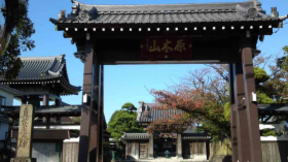
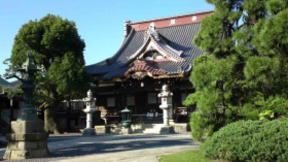
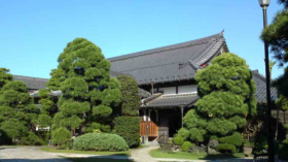
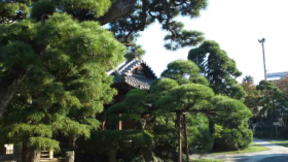
Myogoji Temple is actually famous for Cherry Blossoms, but pine trees in it are also beautiful.
The Tablet Of The Main Hall And The Relief On The Gate
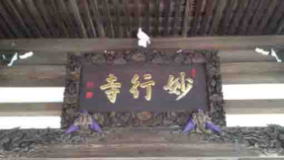

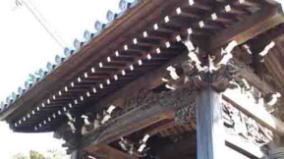
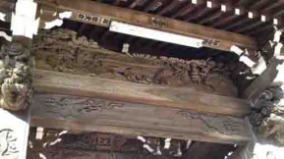
Most people visiting Myogyoji Temple stop at the gate to see the relief on it. The wooden gate has many skillful works on it.
The Drooping Cherry Tree At Myogyo-ji Temple
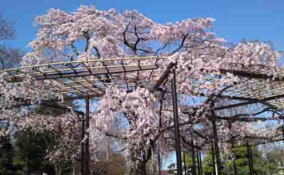

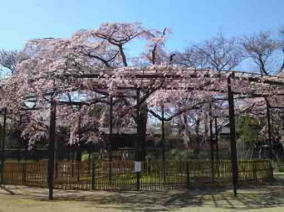
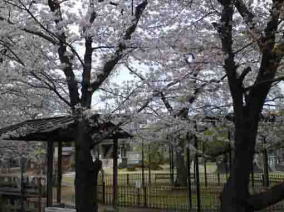
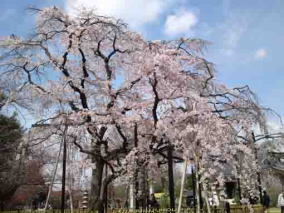
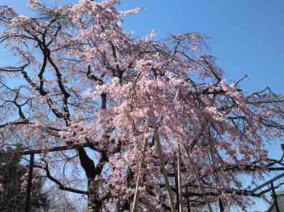

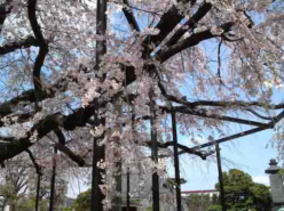
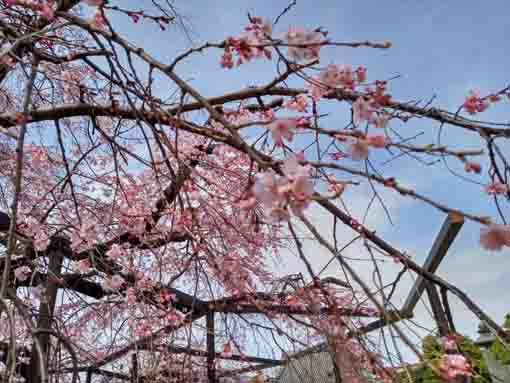
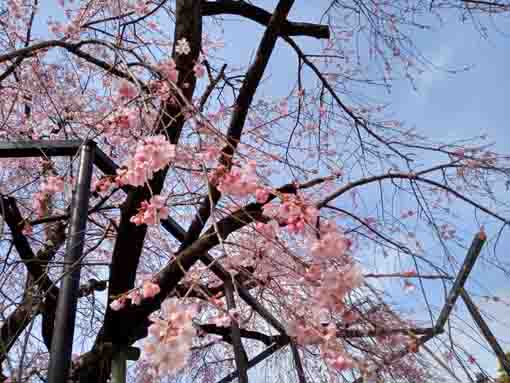
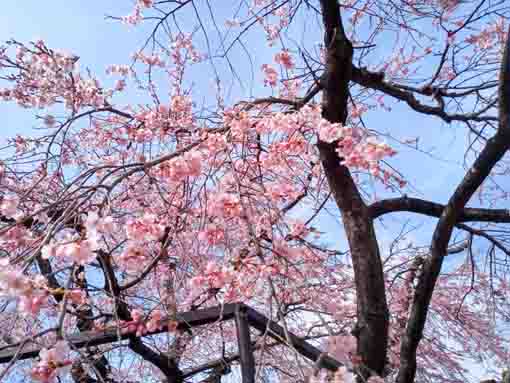
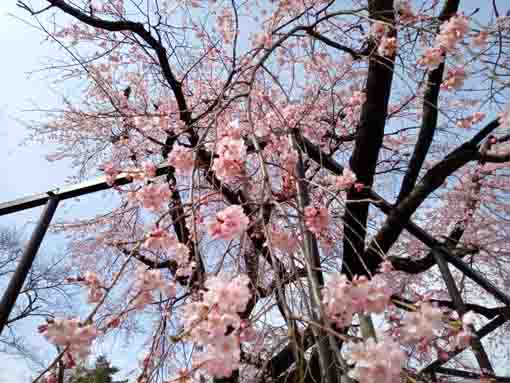
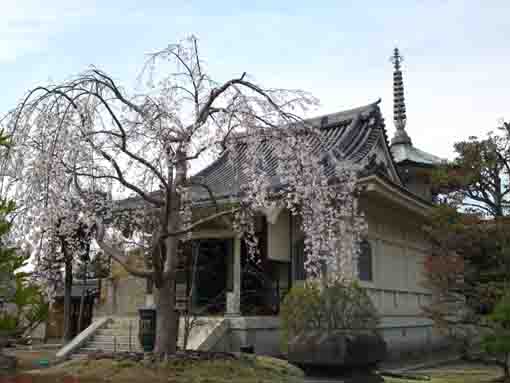


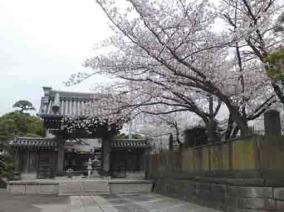
The drooping cherry tree in Myogyoji Temple looks enough beautiful even though it stands alone, so it blooms a week earlier than other cherry trees. Moreover, it informs us when the sakura season in Ichikawa comes.
Seasonal Flowers in Myogyoji Temple
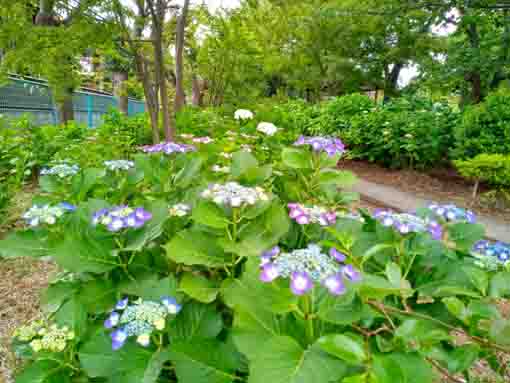
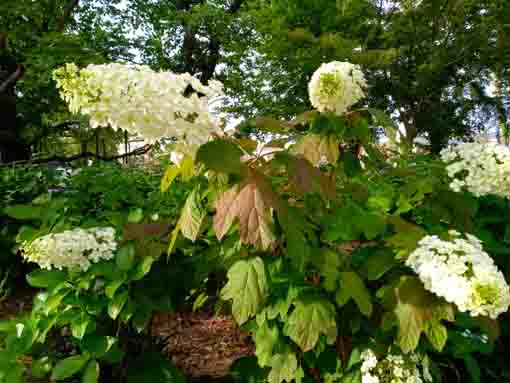
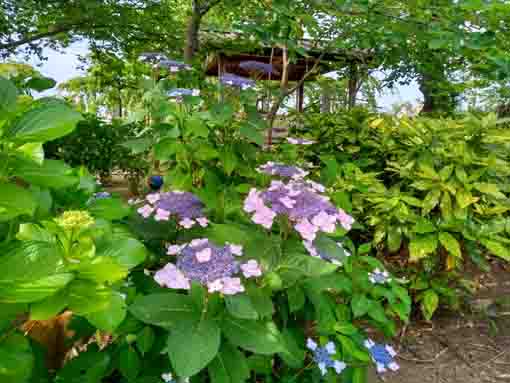
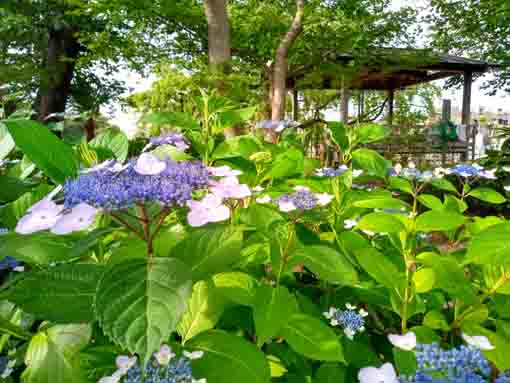
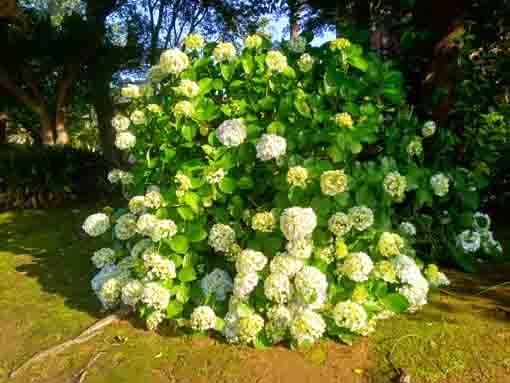
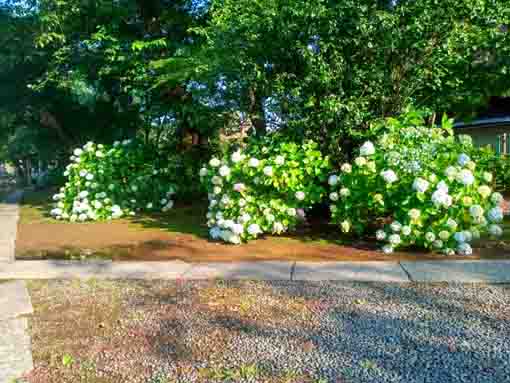
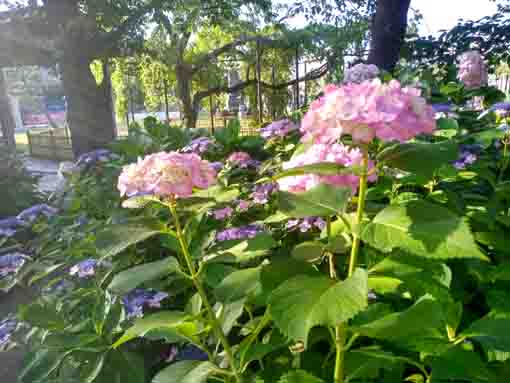
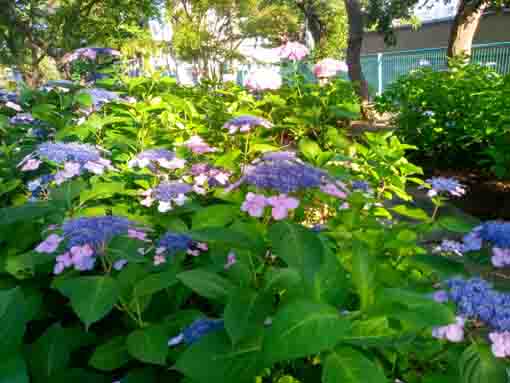
There are many seasonal flowers blooming in Myogoji Temple. Ajisai and spider lilies are specially beautiful.
The Location and Access To Myogyo-ji Temple
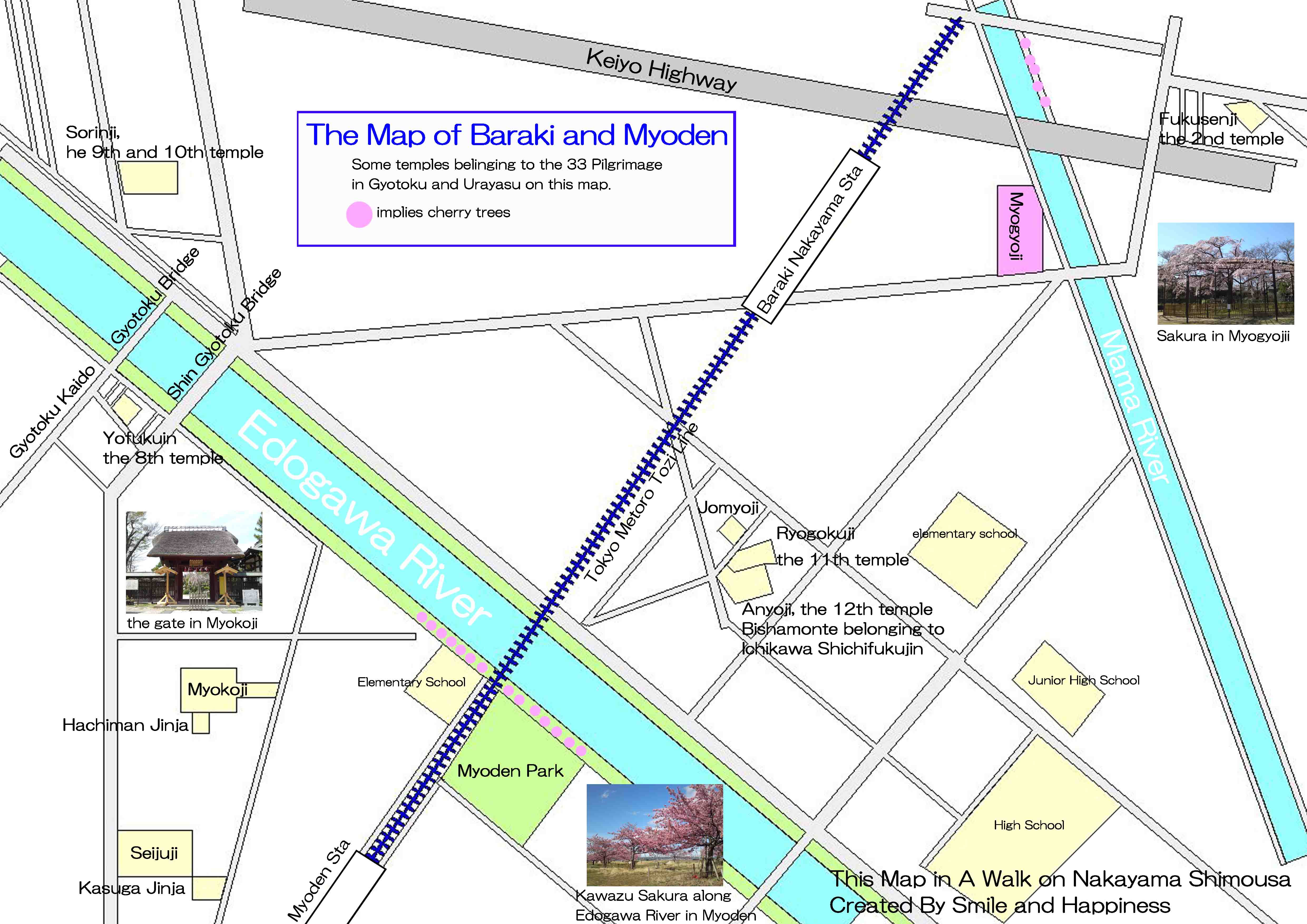
The map of the noted spots in Baraki and Myoden Areas
The Map of the landmarks in Baraki Nakayama and Myoden AreasBarakisan Myogyoji Temple
- Myogyoji-Temple has a great accessibility from both Narita and Haneda International Airport.
- From Narita International Airport, take JR Sobu-express line, transfer the line at Nishi-funabashi to Tozai line of Tokyo Metro bound to Nakano or Mitaka, get off Baraki-Nakayama Sta. And also take Keisei-line, transfer the line at Funabashi to Sobu-Local line, and transfer the line at Nishi-funabashi to Tozai line of Tokyo Metro bound to Nakano or Mitaka, get off Baraki-Nakayama Sta. It takes minimally 50 minutes from Narita Airport.
- From Haneda International Airport, take Keikyu-line bound to Narita, transfer the line at Nihonbashi to Tozai line of Tokyo Metro bound to Nishifunabashi, Tsudanuma or Katsutadai, get off Baraki-Nakayama Sta.
- From Tokyo (Otemachi) Sta, take Tozai line of Tokyo Metro bound to Nishi-funabashi, Tsudanuma or Katsutadai, get off Baraki-Nakayama Sta.
- From Akihabara Sta, take Sobu line bound to Chiba, Tsudanuma or Nishi Funabashi, transfer the line at Nihonbashi to Tozai line of Tokyo Metro, get off Baraki-Nakayama Sta.
- Take 10 minute walk from Barakii-Nakayama Sta.
- 1-24-1 Baraki, Ichikawa-shi, Chiba-ken
The Noted Spots near Barakisan Myogyoji Temple

Myogyoji Temple
- 広告 Advertisement -
